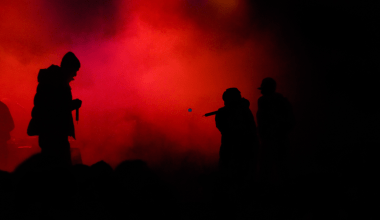In the music industry, protecting your creative work is crucial. One essential tool for this is the songwriter agreement. Whether you’re a budding musician or an established artist, understanding these agreements can safeguard your rights and ensure fair compensation for your work. In this comprehensive guide, we will explore the ins and outs of songwriter agreements, provide a template, and highlight important aspects of these contracts.
What is a Songwriter Agreement?
A songwriter agreement is a contract between a songwriter and a publisher or another party. This document outlines the terms and conditions under which the songwriter’s work can be used, distributed, and monetized. It is crucial for defining the relationship between the songwriter and the party that will exploit their work, ensuring both parties are clear on their rights and obligations.
Key Components of a Songwriter Agreement
Understanding the key components of a songwriter agreement can help you negotiate better terms and protect your interests. Here are some important clauses typically included in such agreements:
1. Grant of Rights
This clause specifies the rights being transferred from the songwriter to the publisher or another party. It includes details on whether the agreement is exclusive or non-exclusive. For instance, in an exclusive songwriter agreement, the songwriter is typically not allowed to work with other publishers during the term of the contract. This ensures that the publisher has the sole right to publish and promote the songwriter’s works.
2. Term
The term clause defines the duration of the agreement. It can be for a specific number of years or until certain conditions are met. Some agreements may be for a fixed term, such as five years, while others may be tied to specific milestones, such as the completion of a certain number of songs.
3. Compensation
Compensation details how the songwriter will be paid. This can include advances, royalties, and any other form of payment. Advances are typically paid upfront and are recoupable against future royalties. Royalties are usually a percentage of the income generated from the use of the songwriter’s works, and this percentage can vary widely depending on the agreement.
4. Ownership
This section clarifies who owns the copyrights to the songs. Typically, the songwriter retains ownership, but the publisher gets the right to exploit the songs. This means that while the songwriter remains the legal owner of the songs, the publisher has the right to license the songs to third parties, collect royalties, and take legal action against unauthorized use.
5. Obligations
The obligations clause outlines what each party is responsible for. For example, the songwriter may be required to deliver a certain number of songs, while the publisher may be responsible for promoting and distributing the music. This section ensures that both parties understand their roles and responsibilities, helping to avoid conflicts and misunderstandings.
6. Termination
This clause explains the conditions under which the agreement can be terminated, including breach of contract or mutual consent. It may also include provisions for early termination, such as penalties or repayment of advances.
7. Indemnification
Indemnification protects the parties from any legal issues that may arise from the use of the songs. This clause ensures that each party will compensate the other for any losses or damages resulting from claims by third parties.
Types of Songwriter Agreements
There are different types of songwriter agreements, each serving a specific purpose. Here are some common ones:
Exclusive Songwriter Agreement
In an exclusive songwriter agreement, the songwriter agrees to write exclusively for one publisher. This type of agreement often includes significant advances and higher royalties but limits the songwriter’s freedom to work with other publishers. This arrangement benefits the publisher by providing a steady stream of new material and allowing them to focus their promotional efforts on a single songwriter’s works.
Non-Exclusive Songwriter Agreement
A non-exclusive agreement allows the songwriter to work with multiple publishers. While this provides more freedom, the compensation may be lower compared to exclusive agreements. This type of agreement is often used by songwriters who want to maximize their opportunities and income by collaborating with various publishers.
Single Song Agreement
This agreement covers a specific song or a limited number of songs. It’s often used for one-off projects or collaborations. For example, if a songwriter collaborates with another artist on a single track, a single song agreement can outline the terms of that specific collaboration.
Co-Publishing Agreement
In a co-publishing agreement, the songwriter and the publisher share the ownership and income from the songs. This can provide the songwriter with higher earnings compared to a traditional agreement. In this arrangement, the publisher typically takes on the administrative tasks, such as licensing and royalty collection, while the songwriter retains a significant portion of the ownership and income.
Why You Need a Songwriter Agreement
Having a songwriter agreement in place is vital for several reasons:
Protection of Rights
The agreement ensures that your rights as a songwriter are protected, and you receive fair compensation for your work. Without a formal agreement, you risk losing control over how your songs are used and may not receive the income you’re entitled to.
Clear Terms
It provides clear terms and conditions, reducing the risk of misunderstandings and disputes. By clearly outlining the rights and obligations of both parties, a songwriter agreement helps to prevent conflicts and ensures that both parties understand what is expected of them.
Professionalism
Using a formal agreement shows professionalism and can enhance your reputation in the industry. It demonstrates that you take your work seriously and are committed to protecting your rights and interests.
Financial Security
By detailing the compensation terms, a songwriter agreement can provide financial security and help you plan your career. Knowing how and when you will be paid allows you to budget and manage your finances more effectively.
Songwriter Agreement Template
Here’s a basic songwriter agreement template to get you started. Remember, it’s always best to consult with a legal professional to tailor the agreement to your specific needs.
[Songwriter Agreement Template]
Songwriter Agreement
This Agreement is made on [Date], between [Songwriter’s Name], referred to as the “Songwriter,” and [Publisher’s Name], referred to as the “Publisher.”
1. Grant of Rights
The Songwriter grants the Publisher the exclusive right to publish, distribute, and monetize the following songs:
- [Song Title 1]
- [Song Title 2]
- [Song Title 3]
2. Term
This Agreement shall commence on [Start Date] and continue for a period of [Number] years.
3. Compensation
The Publisher agrees to pay the Songwriter:
- An advance of [Amount] upon signing this Agreement.
- Royalties of [Percentage]% of the net receipts from the exploitation of the songs.
4. Ownership
The Songwriter retains ownership of the copyrights to the songs. The Publisher is granted the right to exploit the songs as detailed in this Agreement.
5. Obligations
The Songwriter agrees to:
- Deliver [Number] songs by [Deadline].
- Assist in the promotion of the songs as reasonably requested by the Publisher.
The Publisher agrees to:
- Promote and distribute the songs.
- Provide regular accounting statements and payments to the Songwriter.
6. Termination
This Agreement may be terminated by either party in the event of a material breach by the other party, upon [Number] days written notice.
7. Indemnification
The Songwriter agrees to indemnify and hold harmless the Publisher from any claims arising from the use of the songs.
In Witness Whereof, the parties have executed this Agreement as of the date first above written.
[Songwriter’s Name]
[Publisher’s Name]
Common Mistakes in Songwriter Agreements
Avoiding common mistakes can ensure that your songwriter agreement serves your best interests. Here are some pitfalls to watch out for:
Vague Terms
Ensure that all terms are clearly defined to avoid misunderstandings. For example, the term “net receipts” should be clearly defined to avoid disputes over how income is calculated and what expenses can be deducted.
Lack of Legal Review
Always have a legal professional review your agreement to ensure it protects your rights. A lawyer with experience in music law can help you identify potential issues and negotiate better terms.
Ignoring Termination Clauses
Make sure the termination clauses are fair and allow you to exit the agreement if necessary. For example, you may want the right to terminate the agreement if the publisher fails to promote your songs or pay royalties on time.
Overlooking Compensation Details
Ensure that the compensation terms are detailed and fair, including advances, royalties, and payment schedules. For example, specify when royalties will be paid (e.g., quarterly) and how advances will be recouped from future income.
Not Considering Future Works
If you plan to create more songs in the future, ensure that the agreement addresses how these works will be handled. For example, will the publisher have the right of first refusal for your future works?
Missing Performance Obligations
Clearly define what is expected from both parties. For instance, specify how many songs the songwriter is expected to deliver and the level of promotional efforts the publisher must undertake.
How to Negotiate a Songwriter Agreement
Negotiating a songwriter agreement can be challenging, but here are some tips to help you get the best terms:
Do Your Research
Understand the standard terms and compensation in the industry. Knowing what other songwriters receive can help you negotiate better terms.
Know Your Worth
Be confident in your skills and negotiate terms that reflect your value. If you have a proven track record of success, you can leverage this to negotiate higher advances and royalties.
Get Everything in Writing
Ensure all agreed terms are documented in the contract. Verbal agreements are not enforceable and can lead to disputes.
Seek Professional Help
Consult with a lawyer or industry professional to assist with negotiations. They can provide valuable insights and help you avoid common pitfalls.
Be Prepared to Walk Away
If the terms are not favorable, be prepared to walk away. It’s better to wait for a better deal than to sign an agreement that doesn’t serve your best interests.
Focus on Key Clauses
Pay special attention to key clauses such as compensation, term, and rights. Ensure that these clauses are fair and clearly defined.
Negotiate Advances
Advances are typically negotiable. If the publisher offers an advance, try to negotiate a higher amount. Advances provide financial security and demonstrate the publisher’s commitment to promoting your work.
Importance of a Songwriter Agreement Template
Using a songwriter agreement template can simplify the process of drafting a contract. Here are some benefits:
Saves Time
A template provides a structured format, saving you time in drafting the agreement from scratch. It ensures that all necessary clauses are included and reduces the risk of omissions.
Ensures Completeness
Templates include all essential clauses, ensuring nothing important is overlooked. They provide a comprehensive framework that can be customized to suit your specific needs.
Provides a Starting Point
You can customize a template to suit your specific needs and preferences. It provides a foundation that you can build upon, adding or modifying clauses as necessary.
Professional Appearance
Using a professionally designed template gives your agreement a polished and professional appearance. This can enhance your credibility and demonstrate your professionalism to potential partners.
Legal Compliance
Templates are often drafted by legal professionals, ensuring that they comply with relevant laws and industry standards. This can provide peace of mind and help you avoid legal issues.
Advanced Tips for Songwriter Agreements
Understanding Royalties
Royalties are a key component of any songwriter agreement. There are different types of royalties, including mechanical royalties (paid for the reproduction of your music), performance royalties (paid for public performances), and sync royalties (paid for the use of your music in TV, movies, and ads). Ensure your agreement clearly defines how each type of royalty will be calculated and paid.
Performance Metrics
Some agreements may include performance metrics that the publisher must meet, such as a minimum number of song placements per year or achieving a certain level of revenue. These metrics can help ensure that the publisher is actively promoting your music.
Audit Rights
Include a clause that allows you to audit the publisher’s records. This ensures transparency and helps you verify that you are receiving the correct royalties. Specify how often audits can be conducted and who will bear the cost.
Reversion of Rights
Negotiate a reversion clause that allows the rights to revert to you after a certain period or if the publisher fails to meet specific performance criteria. This ensures that you can regain control of your songs if they are not being effectively promoted.
Advances and Recoupment
Understand how advances will be recouped. Advances are usually recouped from future royalties, meaning you won’t receive royalty payments until the advance has been fully repaid. Ensure the recoupment terms are clearly defined, including what expenses can be deducted.
Exclusivity and Non-Compete Clauses
Be cautious of exclusivity and non-compete clauses that may limit your ability to work with other publishers or promote your music independently. Ensure these clauses are reasonable and do not unduly restrict your career.
Dispute Resolution
Include a dispute resolution clause that outlines how disputes will be handled. This can include mediation or arbitration as alternatives to litigation. These methods can be faster and less costly than going to court.
Force Majeure
A force majeure clause excuses a party from fulfilling their contractual obligations due to events beyond their control, such as natural disasters or war. Ensure this clause is fair and reasonable, protecting both parties in unforeseen circumstances.
Conclusion
A songwriter agreement is a vital tool for protecting your rights and ensuring fair compensation in the music industry. By understanding the key components, avoiding common mistakes, and using a template, you can create an agreement that serves your best interests. Always remember to consult with a legal professional to tailor the agreement to your specific needs.
For further reading, explore these related articles:
- Deliver My Tune’s Exciting New Services!
- How to Get Verified on Instagram & Facebook?
- How to Get Verified on Spotify?
For additional resources on music marketing and distribution, visit Deliver My Tune.






